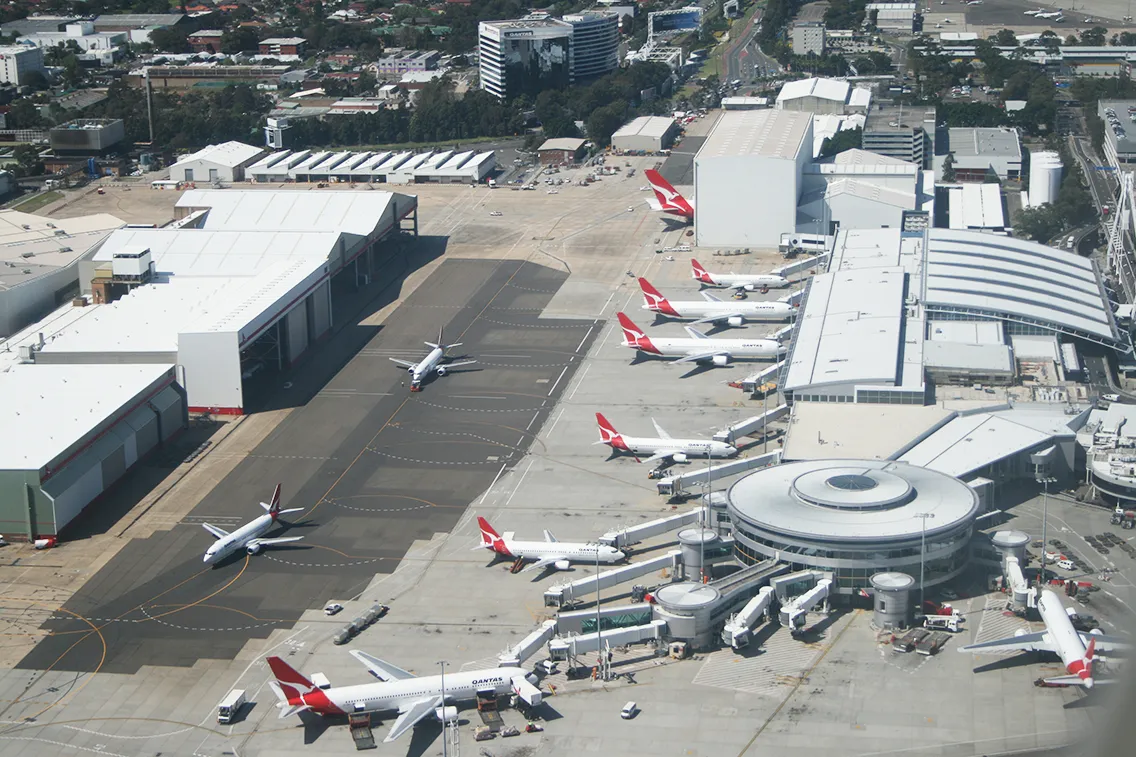
Competition watchdog calls for more regulation of airports
Sep 18, 2018

The competition watchdog has urged for increased regulation of airports to enhance consumer protection and promote fair pricing. Concerns have been raised about the lack of competition in the aviation sector, resulting in high costs for travelers and inadequate services. The watchdog emphasizes that stronger regulatory measures are essential to ensure transparency and accountability among airport operators. These recommendations aim to create a more balanced market, enabling better choices for passengers and fostering an environment where airlines can compete effectively. The call for action reflects a growing recognition of the need to address the challenges faced by consumers in the airport industry.
The recent call from the competition watchdog for increased regulation of airports highlights critical issues related to consumer protection, competition, and market fairness. With air travel becoming an essential part of modern life, ensuring that airports operate under fair practices is vital for both travelers and airlines. This article delves into the implications of these calls for regulation and the potential benefits for consumers.
Understanding the Competition Watchdog's Concerns
The competition watchdog has identified several key areas where current regulations may be lacking. These include pricing transparency, service quality, and competitive practices among airports. By addressing these issues, the regulatory body aims to enhance the overall travel experience for customers while fostering a more competitive environment for airlines.
Pricing Transparency and Consumer Protection
One of the primary concerns raised by the competition watchdog is the lack of pricing transparency at airports. Many passengers are unaware of the various fees associated with their travel, which can lead to frustration and dissatisfaction. The call for more regulation seeks to ensure that airports provide clear and upfront information regarding all costs involved in air travel. This transparency would empower consumers to make informed choices and potentially lead to more competitive pricing among airlines.
Service Quality and Passenger Experience
In addition to pricing, the competition watchdog emphasizes the importance of service quality at airports. Passengers often face long waiting times, inadequate facilities, and poor customer service. By implementing regulations that hold airports accountable for their service standards, the watchdog aims to improve the overall passenger experience. Enhanced service quality can also encourage more travelers to choose air travel over other modes of transportation, benefiting the aviation industry as a whole.
Encouraging Competition Among Airports
Another critical aspect of the call for increased regulation is the promotion of competition among airports. In many regions, a few major airports dominate the market, leading to monopolistic practices that can negatively impact consumers. By introducing regulations that foster competition, the watchdog hopes to incentivize airports to improve their services and pricing structures, ultimately benefiting travelers.
The Role of Regulatory Frameworks
To implement these changes, a robust regulatory framework is essential. This framework should include:
| Regulatory Aspect | Description |
|---|---|
| Pricing Regulations | Establishing guidelines for transparent pricing practices to ensure consumers are fully informed. |
| Service Standards | Setting minimum service quality standards that airports must adhere to, focusing on efficiency and customer satisfaction. |
| Market Competition | Encouraging new entrants into the airport market to enhance competition and drive down prices. |
Potential Benefits for Travelers
The introduction of stricter regulations could lead to numerous benefits for travelers. Some of these benefits include:
- Lower Costs: With improved pricing transparency and increased competition, travelers may see a reduction in ticket prices and ancillary fees.
- Improved Facilities: Airports may invest in better facilities and services in order to attract more passengers and airlines.
- Enhanced Customer Service: Stricter regulations can motivate airports to prioritize customer satisfaction, leading to a more pleasant travel experience.
- Greater Choice: With more competitive airports, travelers will have a wider range of options when choosing flights and services.
Challenges Ahead
Despite the potential benefits, implementing these regulations may not be without challenges. Airports may resist changes that could impact their revenue streams, and there may be concerns about the feasibility of enforcing new regulations. However, the potential positive impact on consumer welfare and the aviation market makes the case for regulation stronger. Collaborative efforts between the competition watchdog, airport authorities, and airlines will be crucial in overcoming these hurdles.
Conclusion
The competition watchdog's call for more regulation of airports serves as a timely reminder of the need for fair practices in the aviation industry. By addressing issues of pricing transparency, service quality, and competition, regulations can significantly enhance the travel experience for consumers. As discussions on these regulations continue, it is essential for all stakeholders to focus on creating a more equitable and efficient air travel landscape. Ultimately, the aim should be to benefit the consumer while fostering a healthy and competitive market for airlines and airports alike.
Related Articles

Explore Thailand: The Best Islands to Visit for Paradise, Adventure, and Relaxation

The Ultimate Guide to the Best Islands in Thailand for Your Next Getaway

Do babies need passports? How to get a passport for a newborn

How to get a U.S. passport fast: here’s how to expedite the process

What is Mobile Passport Control: 5 reasons why you should use it

SENTRI vs. Global Entry: A detailed guide

Do you need a passport to go to the Bahamas? Let’s find out

Do you need a passport to go to Mexico? A detailed guide

Do you need a passport to go to Canada? We got the answer

Do You Need a Passport for a Cruise: An Essential Travel Guide

Booster Seat Requirements: All the Rules to Follow in Your Rental Car

What Are the World’s Most Powerful Passports, and How Does Yours Rank?

How to Take a Passport Photo at Home: A Helpful Guide

You've got to have heart! Southwest's new livery

Your opinion: Should water be free on low cost carriers?

Young women bolder than guys as solo travellers
